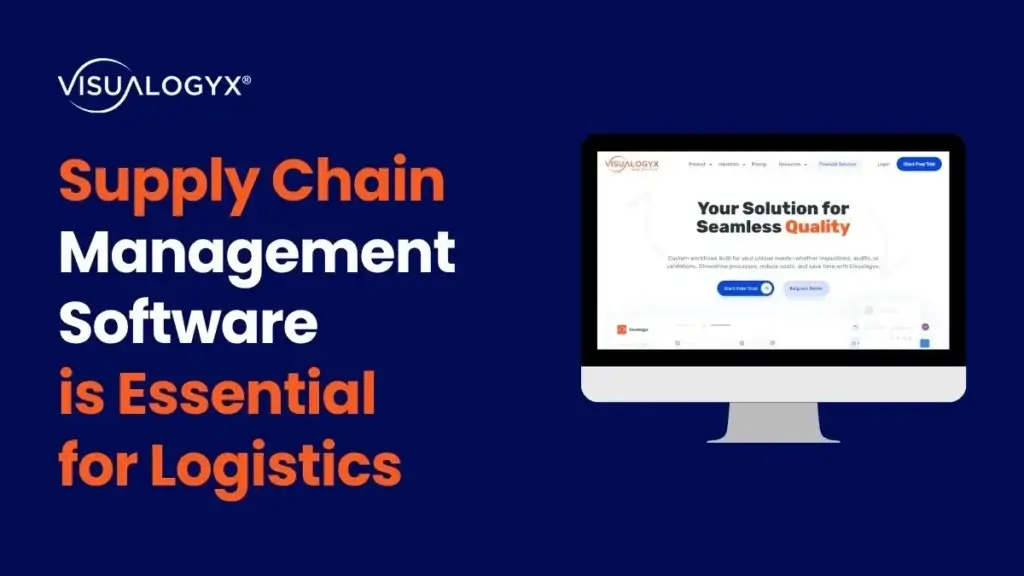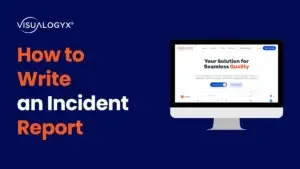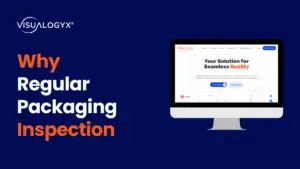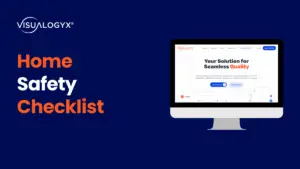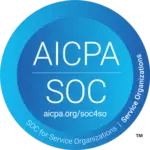Introduction
In today’s rapidly evolving hospitality industry, digital inspection tools have revolutionized the traditional pen-and-paper approach to inspections.
These tools leverage mobile devices, cloud computing, and data analytics to enhance efficiency, accuracy, and compliance. By replacing manual processes with digital solutions, inspections in hotels, restaurants, and other hospitality establishments are now conducted more efficiently. Inspectors can easily access digital checklists and forms on their mobile devices, eliminating the need for cumbersome paperwork and reducing the time required for inspections. Real-time synchronization with cloud-based platforms allows for immediate data collection, reducing administrative tasks and enabling prompt action on any issues identified during inspections.
The Drawbacks of Traditional Paper-Based Inspections
In the rapidly evolving hospitality industry, we are witnessing the impact of the fourth industrial revolution.
Emerging technologies like artificial intelligence, robotics, virtual reality, the Internet of Things, and 5G wireless are transforming the way businesses operate and engage with customers. The recent acceleration of digital transformation due to the Covid-19 pandemic has further amplified the adoption of these innovative technologies in the hospitality sector. When we have technology at our feet, it would be foolish to not take advantage of its benefits.
Here are some drawbacks associated with paper-based inspections to understand why we need to go digital at the earliest.
- Time-consuming process: Traditional paper-based inspections in the hospitality sector are plagued by inefficiencies and time-consuming procedures. Inspectors must carry around bulky paper checklists and forms, spending valuable time manually filling them out during the inspection. The need to transcribe inspection data from paper to digital systems for record-keeping further adds to the administrative burden. This manual process slows down the overall inspection workflow, potentially delaying the identification and resolution of issues.
- Human errors and inconsistencies: Relying on paper for inspections increases the likelihood of human errors and inconsistencies in inspection reports. Inspectors may unintentionally skip or overlook certain checkpoints or make mistakes while transcribing data, leading to incomplete or inaccurate information. Additionally, variations in handwriting and interpretation of inspection criteria can result in inconsistent reports across different inspectors or inspection sessions. These errors and inconsistencies undermine the reliability of the inspection process and can compromise the overall quality and safety standards of the establishment.
- Compliance risks: Traditional paper-based inspections often lack real-time monitoring and data analysis capabilities, leading to potential compliance risks. Inspectors may not have access to the most up-to-date regulations and standards during the inspection, increasing the chances of non-compliance. Furthermore, without real-time visibility into inspection data, it becomes challenging for management to identify patterns or trends that may indicate systemic issues. This lack of data analysis hampers proactive decision-making and the implementation of corrective measures, leaving establishments vulnerable to compliance breaches and potential penalties.
The limitations of traditional paper-based inspections highlight the urgent need for digital inspection tools in the hospitality sector. These drawbacks not only hamper operational efficiency but also jeopardize the accuracy and compliance of inspections. By transitioning to digital tools, the industry can overcome these challenges and embrace a more streamlined, error-free, and compliant approach to inspections.
How Digital Inspections Tools are Bringing a Change
Digital inspection tools are software applications designed for inspections in the hospitality sector. They offer features like digital checklists, customizable forms, real-time synchronization and data validation AI. They streamline the inspection process, replacing manual paperwork.
- Streamlined processes: Digital tools automate inspections, reducing paperwork and saving time. Inspectors can access checklists on mobile devices, mark responses digitally, and attach multimedia evidence. Auto-population, calculations, and validation checks minimize errors and ensure efficiency.
- Real-time data collection and analysis: Digital tools capture data instantly, allowing immediate insights, data validation, and corrective actions. Cloud-based platforms enable real-time monitoring, proactive compliance management, and data-driven decision-making. Robust analytics simplify reporting and audits.
- Enhanced accuracy and consistency: Digital tools eliminate human errors and standardize inspections. Structured forms and validation checks ensure consistent reporting. This improves accuracy, credibility, and compliance.
Digital inspection tools transform inspections, improving efficiency, accuracy, and compliance in the hospitality sector. By automating processes, enabling real-time data collection and analysis, and enhancing accuracy and consistency, these tools optimize operations and elevate industry standards.
Key Benefits of Using Digital Inspection Tools in The Hospitality Sector
- Improved efficiency: Digital inspection tools expedite inspections, freeing up staff to focus on essential tasks. This enhanced efficiency allows employees to allocate more resources to guest service and operational improvements.
- Engagement & Accountability: it is crucial to implement strategies that ensure checks are completed in a timely manner and by the appropriate personnel. Automating reminders can help in prompting inspections to be done on schedule and by the designated individuals, thereby fostering accountability. Furthermore, sharing templates efficiently with the relevant teams or individuals enables clear communication and ensures that the necessary inspection tasks are carried out.
- Enhanced guest satisfaction: Real-time inspections and prompt issue resolution through digital tools contribute to improved guest experiences. Addressing guest concerns promptly leads to higher guest satisfaction and positive online feedback.
- Better compliance and risk management: Digital tools enable continuous monitoring, reducing compliance risks. Proactive identification of compliance gaps and prompt corrective actions help establishments maintain better compliance and mitigate risks.
- Data-driven decision-making: The data collected through digital inspection tools empower data-driven decision-making and strategic planning. Analyzing trends and patterns from inspection data allows establishments to identify areas for improvement, allocate resources effectively, and make informed decisions that drive business growth.
By harnessing the benefits of digital inspection tools, the hospitality sector can unlock improvements in efficiency, guest satisfaction, compliance, and decision-making. These tools empower establishments to optimize operations, provide exceptional guest experiences, mitigate risks, and achieve sustainable growth in an increasingly competitive industry.
Understanding the Application with Hypothetical Case Scenarios
Disclaimer: The following scenarios are purely hypothetical and do not represent specific real-life cases. They are designed to showcase the potential benefits and outcomes of implementing digital inspection tools in the hospitality sector while maintaining compliance with industry standards.
Scenario 1: Boutique Hotel’s Transition to Digital Inspections
In this hypothetical scenario, a boutique hotel decides to transition from paper-based inspections to digital inspection tools.
The hotel aims to improve efficiency, accuracy, and compliance with industry standards. By implementing digital tools, the hotel streamlines its inspection process, reducing inspection time. Inspectors utilize tablets to conduct inspections and instantly capture data, eliminating the need for manual data entry. Real-time synchronization enables immediate access to inspection reports, allowing management to address any issues promptly.
The digital tools incorporate pre-built templates and workflows tailored to the hotel industry, ensuring compliance with relevant regulations and standards. The customizable checklists align with the hotel’s specific operational requirements, ensuring standardized inspections across different areas such as housekeeping, maintenance, and safety protocols. As a result, the hotel experiences a significant improvement in the accuracy and consistency of inspections, leading to enhanced guest satisfaction and positive online reviews.
Scenario 2: Restaurant’s Quality Control Enhancement
In this hypothetical scenario, a restaurant seeks to enhance its quality control processes through digital inspection tools.
The restaurant implements digital tools to streamline food safety inspections and improve compliance with industry standards. Inspectors use smartphones equipped with digital checklists to conduct inspections efficiently. The tools offer automated calculations and validation checks, minimizing errors and ensuring consistent inspections.
Real-time data collection and analysis provide valuable insights into trends and patterns related to food safety. The restaurant identifies areas for improvement and takes proactive measures to address any compliance gaps. By leveraging the data-driven decision-making capabilities of digital tools, the restaurant achieves a significant reduction in food safety incidents and upholds high standards of quality control.
Scenario 3: Event Venue’s Streamlined Operations
In this hypothetical scenario, an event venue adopts digital inspection tools to streamline its operations and ensure seamless event experiences.
The venue aims to enhance efficiency, compliance, and guest satisfaction. Inspectors utilize tablets to conduct inspections and capture photos and videos of event setups, allowing for visual documentation and efficient communication between event planners and venue staff.
The digital tools enable real-time monitoring and immediate access to inspection reports, ensuring compliance with safety regulations and standardized event procedures. The venue experiences a reduction in event setup time and a decrease in errors or oversights, resulting in smoother event operations and increased customer satisfaction.
These hypothetical case scenarios showcase the potential benefits of implementing digital inspection tools in the hospitality sector. While compliance with industry standards is crucial, the utilization of digital tools can bring about efficiency, accuracy, and enhanced guest experiences.
The Future of Digital Inspections in the Hospitality Sector
Digital inspection tools significantly improve the accuracy of inspections in the hospitality sector.
The digital format eliminates the risk of human error associated with manual data entry, ensuring that inspection results are recorded accurately. These tools often come equipped with built-in AI validation checks and automated calculations, further minimizing the possibility of mistakes. The ability to capture and store multimedia evidence, such as photos and videos, enhances the accuracy and thoroughness of inspections, providing visual documentation for compliance purposes.
With digital tools, inspectors can efficiently identify and document non-compliance issues, ensuring that corrective actions are taken promptly to maintain high standards of service, hygiene, and safety.
Conclusion
In conclusion, digital inspections offer clear advantages over paper-based inspections in the hospitality industry.
By choosing digital tools, establishments can streamline processes, enhance guest satisfaction, improve compliance, and make data-driven decisions. Digital inspections save time by automating checklists and reducing paperwork. Real-time data collection enables immediate insights and proactive issue resolution. This leads to enhanced guest satisfaction and positive online reviews.
Moreover, digital tools improve compliance and risk management through continuous monitoring and prompt identification of compliance gaps. They foster trust among guests and regulatory authorities, reducing compliance-related incidents.
Additionally, data collected through digital inspections facilitate data-driven decision-making. Insights into trends and areas for improvement optimize operations and resource allocation, driving business growth.
In the digital age, embracing digital inspections is crucial for the hospitality industry to stay competitive and meet industry standards. It’s time to transition from pen and paper to the transformative power of digital inspection tools.
